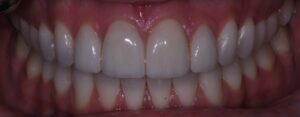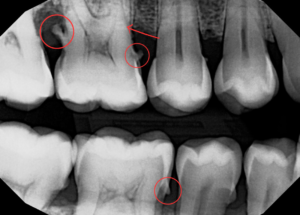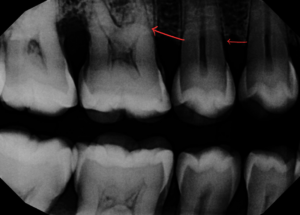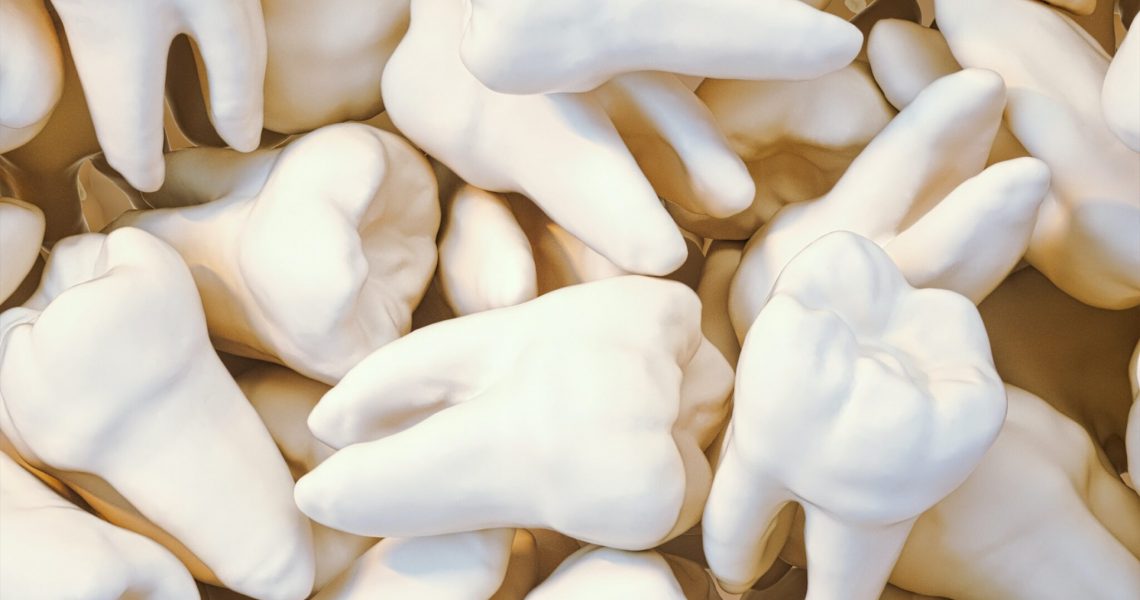A bright and healthy smile is an asset we all cherish. However, maintaining pristine oral hygiene isn’t always as simple as brushing and flossing. An easy way to think of tartar is a hardened form of plaque that can accumulate on your teeth and wreak havoc on your dental health if left unattended.
Understanding Tartar
Tartar, also known as dental calculus, is a calcified deposit that forms on the teeth when plaque, a sticky film of bacteria and food particles, isn’t thoroughly removed. Over time, plaque hardens and turns into tartar. Unlike plaque, which can be removed with regular brushing and flossing, tartar is a stubborn substance that requires professional intervention(dental hygiene visit with us) to eliminate.

This is a perfect example of healthy, pink, pointy gum tissue with the appearance of orange peel. Clean teeth, no purples or recession seen. This is what to aim for!
Consequences of Tartar Buildup
Tartar may seem insignificant, but its presence can lead to a host of dental issues:
- Gum Disease: The presence of tartar irritates your gums, causing inflammation and potentially leading to gum disease, which can range from mild gingivitis to severe periodontitis. That’s a huge range and timeline that allows ample time for you and us, your dental office, to intervene. Just be aware that periodontitis(inflammation and loss of bone around teeth), is the leading cause of tooth loss in adults.
- Mild gingivitis=inflammation of gum tissue only
- Severe periodontitis=bone inflammation, bone loss, tooth loss risk

Check out the circled areas; this is tartar/calculus, as seen on our checkup x-rays. If you see the arrow, it goes diagonally instead of horizontally; this is where the inflammation has caused some bone loss and localized periodontitis. Left untreated, it will lead to tooth loss, pain, infection, and overall body inflammation.

After necessary deep cleaning, notice none of the fuzzy tartar/calculus areas remain. This allows for great healing of inflammation, assuming our awesome patient can maintain regular professional cleanings with a hygienist. I’ve drawn lines for bone levels, and you can see that bone does not regrow but will instead stabilize to a new healthy normal.
- Bad Breath: Tartar can contribute to persistent bad breath, as it harbors bacteria responsible for foul odors. Nobody likes bad breath, bad taste, etc in their mouth!
- Staining: Tartar can also cause teeth discoloration, making your smile less attractive.
Preventing Tartar Buildup
The best way to deal with tartar is to prevent it from forming in the first place. Here are some effective strategies:
- Regular Brushing: Brush your teeth at least twice a day using fluoride toothpaste. Pay attention to proper brushing techniques and reach all surfaces of your teeth.
- Flossing: Daily flossing helps remove plaque and food particles from between your teeth, preventing tartar formation in hard-to-reach areas.
- Mouthwash: Use an antiseptic mouthwash to reduce bacteria in your mouth.
- Balanced Diet: Limit sugary and starchy foods, which can fuel excess plaque. Opt for a diet rich in fruits, vegetables, and lean proteins.
- Regular Dental Check-ups: Visit your dentist regularly for professional cleanings and check-ups. Your dentist can detect tartar buildup early and address it before it causes significant problems.
If you have any questions, please contact Brooks Family Dental at (775) 329 – 9534!


